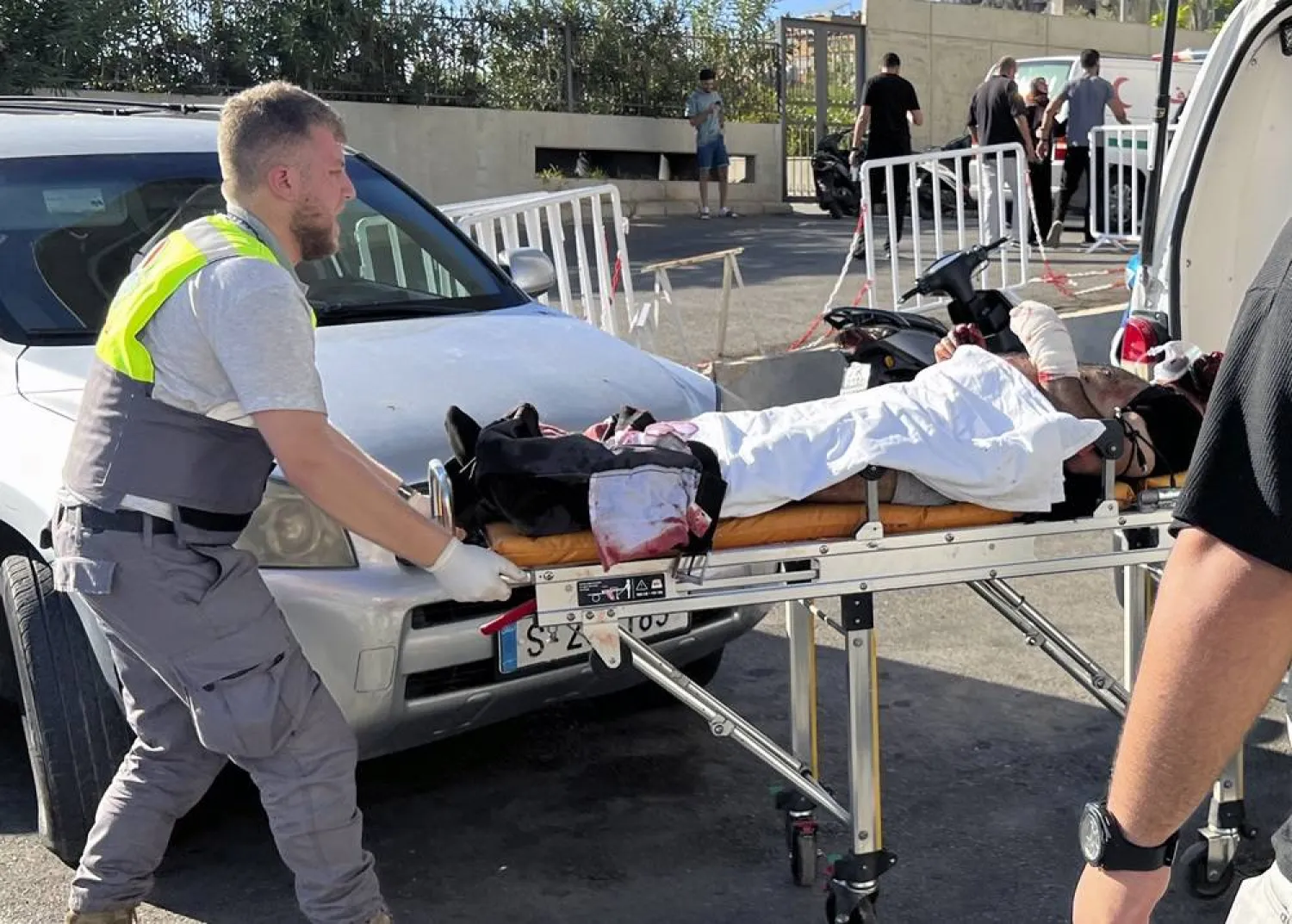Weaponizing ordinary communication devices represents a new development in warfare, and targeting thousands of Lebanese people using pagers, two-way radios and electronic equipment without their knowledge is a violation of international human rights law, the United Nations human rights chief said Friday.
Volker Türk told an emergency meeting of the UN Security Council there must be an independent and transparent investigation of the two attacks in Lebanon on Tuesday and Wednesday where these devices exploded, reportedly killing 37 people and injuring more than 3,400 others.
“Those who ordered and carried out these attacks must be held to account,” he said.
Lebanon has blamed Israel for the attacks, which appeared to target Hezbollah members but also saw many civilian casualties, including children. Hezbollah has fought many conflicts with Israel, including a war in 2006, and it has conducted near-daily strikes against Israel to support Hamas fighters who attacked Israel on Oct. 7.
Before the council meeting, Israel’s UN Ambassador Danny Danon was asked by reporters about speculation Israel was behind the two explosions.
“We are not commenting on the specific attacks you mentioned, but I can tell you that we will do everything we can to target those terrorists to minimize casualties for civilians,” he replied.
Lebanon’s caretaker Foreign Minister Abdallah Bou Habib accused Israel of terrorizing the entire Lebanese population on streets, in markets, shops and their homes where their communications devices exploded.
He held up a photo of a mangled and bloodied hand, telling ambassadors from the 15 council nations: “Look at the ugliness of what has happened in this picture.”
Bou Habib insisted that Israel not only launched the attacks but told the council there were “official declarations” and a tweet by an adviser to Prime Minister Benjamin Netanyahu “that was lately deleted, emphasizing the responsibility of Israel and praising the positive results of this assault.”
He appeared to be referring to a deleted tweet by Netanyahu adviser Topaz Luke, who reportedly retweeted a post that included a reply indicating that Israel was behind the attacks in Lebanon and neighboring Syria.
Israel’s Danon criticized the Lebanese minister for never mentioning Hezbollah and said the Lebanese people are “trapped in the grip of this terrorist organization.”
Bou Habib warned the council that if it doesn’t condemn the week’s deadly explosions and name Israel as the perpetrator, a “Pandora’s Box” will be opened, and governments and extremists will target, terrorize and kill civilians with similar communications devices on trains, planes and elsewhere.
Türk, the UN high commissioner for human rights, said the explosions not only violated international human rights law but also appear to violate international humanitarian law’s key principles in carrying out attacks: distinction between civilians and combatants, proportionality, and precautions.
International law also prohibits the use of booby-trap devices that look harmless, he said, and “it is a war crime to commit violence intended to spread terror among civilians.”
“Let me be clear — this method of warfare may be new and unfamiliar,” Türk said, “but international humanitarian and human rights law apply regardless and must be upheld.”
Israel’s Danon blamed Iran and its “puppet” Hezbollah for the military action across the Lebanon-Israel border.
“While Israel is not seeking a wider conflict, let me be clear: We will not allow Hezbollah to continue its provocations,” he said. Israel will do “whatever it takes” to return its 60,000 citizens who fled their homes in the north because of attacks, “and we will not allow Hezbollah’s terror to dictate the future of our nation.”
Iran’s UN Ambassador Amir Saeid Iravani countered that “Israel bears full responsibility for the perpetration of such horrific crimes,” and said his government will pursue accountability for the attack on the country’s ambassador to Lebanon, whose eyes were injured in the explosions Tuesday.
He said the gravity of the attacks against the Lebanese people must also be seen as “a threat to peace and security across the region.” He added that “the international community must not ignore the role the Western countries, in particular the United States and UK, play in enabling Israel’s aggressions.”
UN political chief Rosemary DiCarlo warned the council that the explosions along with more than 11 months of bloodshed in Gaza, and near-daily exchanges of fire across the Israel-Lebanon border, pose a grave risk to security and stability in the region.
She urged all actors to exercise maximum restraint, and she strongly urged countries with influence on the parties “to leverage it now.”
Earlier, UN spokesperson Stephane Dujarric urged Israel and Hezbollah to immediately return to the cessation of hostilities that existed before Hamas’ Oct. 7 attacks in southern Israel and Israel's responding military campaign in Gaza, warning that “the region is on the brink of a catastrophe” and a diplomatic solution should be pursued urgently.









